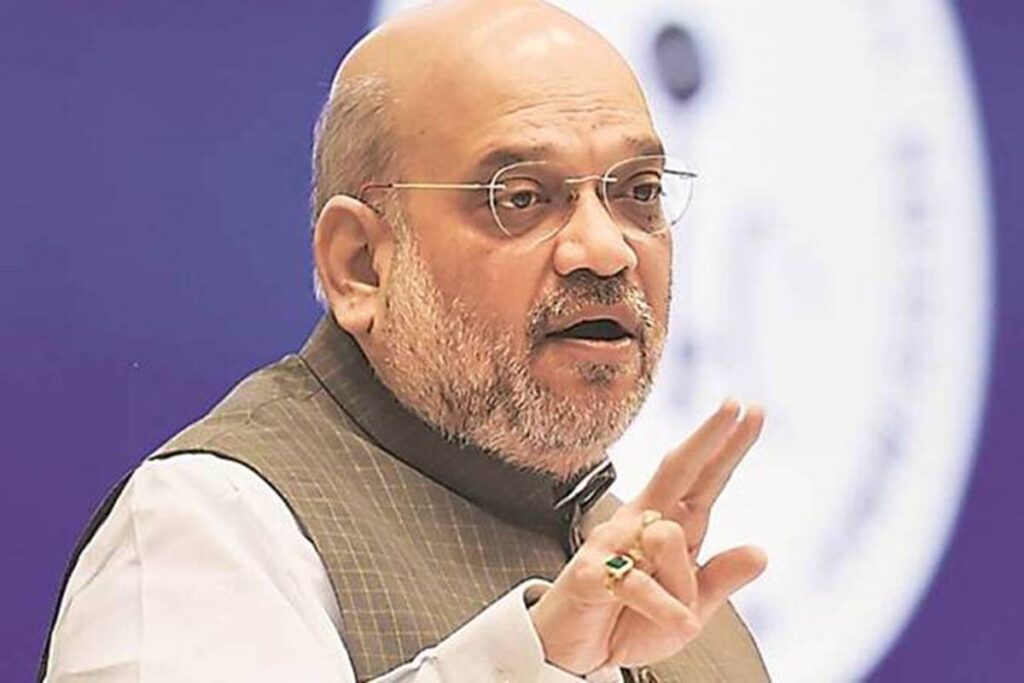Union Home Minister Amit Shah on Thursday discussing the importance of the Hindi language in India said that it should be used as an alternative to English across the country.
He said this while presiding over the 37th meeting of the Parliamentary Official Language Committee on the premises of the parliament.
The Home Minister said that Hindi should be the alternative to the English language and not other local languages.
He said that Hindi should be accepted as an alternative to English and not to local languages.
He also added, “unless we make Hindi flexible by accepting words from other local languages, it will not be propagated”.
Home Minister unanimously approved the sending of the 11th Volume of the Committee’s report to the President of India. Amit Shah said that the pace at which the current Official Language Committee is working has rarely been seen before.
He said that sending three Reports to the President of India in the same tenure of the committee is a joint achievement of all.
Shah said that the Secretary of the Official Language Committee should inform the members about the implementation of the volume-wise report in that meeting.
Under the second point, he stressed the need to give elementary knowledge of Hindi to students up to Class 9 and pay more attention to Hindi teaching examinations.
The Union Home Minister suggested republishing the Hindi dictionary by revising it.
Amit Shah said that Prime Minister Narendra Modi has decided that the medium of running the government is the Official Language and this will increase the importance of Hindi.
He said, “Now the time has come to make the Official Language an important part of the unity of the country.
When citizens of States who speak other languages, communicate with each other, it should be in the language of India. Hindi should be accepted as an alternative to English and not to local languages.”
“Unless we make Hindi flexible by accepting words from other local languages, it will not be propagated”, he added.
The Union Home Minister informed members that now 70 per cent of the agenda of the Cabinet is prepared in Hindi.
He also added, “22,000 Hindi teachers have been recruited in the eight states of the North East. Also, nine tribal communities of the North East have converted their dialects’ scripts to Devanagari. Apart from this, all the eight states of the North East have agreed to make Hindi compulsory in schools up to Class X.”

